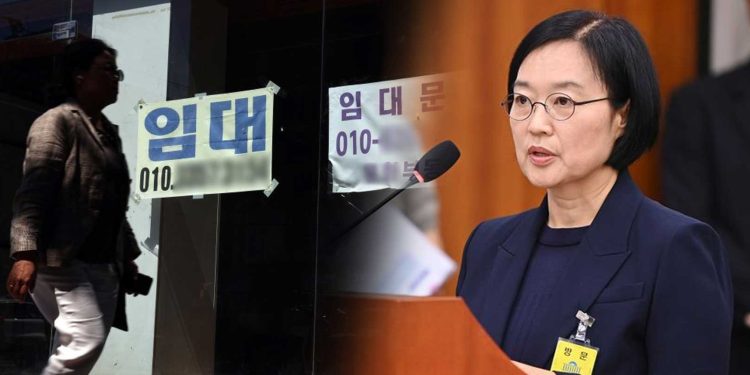Business closure is a reality in every entrepreneurial ecosystem. What matters is how founders are supported when they attempt to restart. Korea’s Ministry of SMEs and Startups (MSS) has announced strengthened measures to reduce costs, expand financing, and provide psychological recovery for small business owners relaunching after closure. These policies offer a glimpse into how Korea is institutionalizing resilience for entrepreneurs — lessons that resonate beyond its borders.
Korea’s Ministry of SMEs and Startups Announces Expanded Restart Support
On September 12, 2025, the Ministry of SMEs and Startups held its seventh policy roundtable on “Small Business Recovery and Safety Net Reinforcement” at Lycon Town in Jung-gu, Daejeon.
The ministry unveiled a package of reforms under its Prepared Restart Support Plan. Key changes include:
- Cutting the self-contribution burden for business relaunch funds (up to KRW 200 million / approximately USD 145,000) from 100% to 50%.
- Allowing the Special Rechallenge Fund (재도전특별자금, up to KRW 100 million / approx. USD 72,500) to be accessed during the relaunch process, rather than only in the following year.
- Expanding eligibility for an enhanced “Re-Leap Type” Special Rechallenge Fund of up to KRW 200 million for entrepreneurs who have repaid policy loans faithfully for more than three years.
Building Structured Restart Pathways for Small Businesses
The announcement builds on a policy series MSS has been conducting since July 2025 to strengthen safety nets for small businesses.
The Hope Return Package (희망리턴패키지) — Korea’s core re-entrepreneurship support program — is being refined. Applicant evaluations, previously based on business plans and managerial capacity, will now include competition analysis such as industry saturation. The aim is to ensure that only entrepreneurs with viable, differentiated models receive public support.
Psychological recovery programs, which were piloted this year, will be institutionalized starting in 2026. These are designed to help entrepreneurs overcome loss, depression, and self-esteem challenges after closure — recognizing that resilience is not only financial but also emotional.
The New Start Fund debt adjustment program, which provides support for those with restructured obligations, will also shift from pilot to permanent status.
Helping Korea’s Entrepreneurs Rise Again
Choi Won-young, Director-General for Small Business Policy at MSS, emphasized the risks of repeated failure without support:
“Repeated closures can be a fatal risk for small business owners, given the economic difficulties involved. Through policies that can be felt on the ground, we aim to help prepared entrepreneurs rise again.”
Why This Matters for Korea’s Startup Ecosystem
These measures demonstrate a structured approach to entrepreneurial resilience. By reducing upfront burdens and providing staged financial support, MSS is creating conditions where founders can pivot, recover, and scale again without being permanently excluded after failure.
And so, for Korea’s startup ecosystem, which faces a limited domestic market and strong competition, such policies help ensure that entrepreneurial talent is not lost. The linkage of financing with repayment discipline — rewarding those who demonstrate responsibility with access to larger capital pools — also reflects a maturing credit culture.
Globally, Korea’s model contributes to ongoing discussions on how ecosystems can institutionalize second chances. Many Asia-Pacific markets lack formal restart policies, leaving entrepreneurs to rely on informal credit or personal networks. Korea’s structured Hope Return Package and Special Rechallenge Fund provide a replicable framework for regions seeking to lower stigma and costs around entrepreneurial failure.
Striving Toward Korea’s Resilient Entrepreneurship
Finally, the Ministry of SMEs and Startups’ latest measures signal a broader policy shift that entrepreneurship is not only about initial success, but also about ensuring viable pathways back after failure.
This means strengthening Korea’s small business base while reinforcing the credibility of the country’s startup ecosystem in the eyes of global investors and partners.
Therefore, as more economies confront the volatility of venture creation, Korea’s structured approach to “prepared restart” could serve as a benchmark for building ecosystems where resilience is not incidental but designed into policy.
🤝 Looking to connect with verified Korean companies building globally?
Explore curated company profiles and request direct introductions through beSUCCESS Connect.
– Stay Ahead in Korea’s Startup Scene –
Get real-time insights, funding updates, and policy shifts shaping Korea’s innovation ecosystem.
➡️ Follow KoreaTechDesk on LinkedIn, X (Twitter), Threads, Bluesky, Telegram, Facebook, and WhatsApp Channel.





